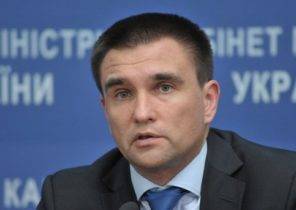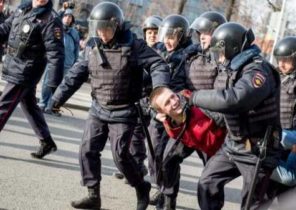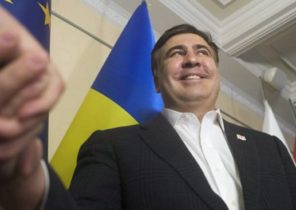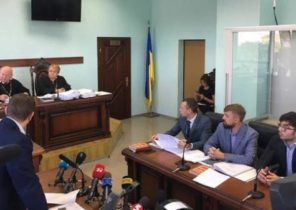Left defender “Atletico” (Madrid) was not able to contain the attack of the German striker, who ended up one on one with the main goalkeeper of the season 1956/1957 Possom (Pozas). The score was 2:2, fans in the stands, trying to find a scapegoat, started shouting: “Tree!”, “Bald”, “Red!”, cheers were heard throughout the arena. “Red Russian!” “Red Russian!” That’s what screaming fans.
Left-back 34-year-old Agustin Gomez of Pagola (Agustín Gómez Pagola) put on the form “plans” in the first and last time.
No one can deny that he was the star of the all-Union scale, the captain of the team “torpedo”, which performed several seasons from 1947 to 1954. In addition, it is impossible to forget that with the torpedo, he became the owner of the USSR Cup and became the USSR team at the Olympic games in Helsinki in 1952.
Agustin Gomez of Paola returned to Spain in one of the groups repatriated from the Soviet Union of the Spaniards. Under the mediation of the International red cross by the government of Spain and the Soviet Union concluded an agreement that everyone could return home. In total from 1956 to 1957 returned about 2,600 people. Some participated in the Civil war and after the fall of the Republic fled to the Soviet Union. Others were among the three thousand children, mostly from the Basque Country and Asturias, where the government of the Republic, a refuge from war and famine, were taken to the USSR.
Agustin was one of the older children who left home. Agustin Gomez of Pagala in Renteria was born 18 November 1922. When he was fifteen, he left the Basque Country. Back in his native town, he predicted his career. After he was in the USSR, noticed his athletic and intellectual achievements and was sent to study in Moscow technical University, where Agustin studied at the faculty of engineering, played in the University team and was its undisputed leader. In 1941, he worked as an engineer at the factory “Red rose” and played for her team. Soon in June of the same year, when Germany attacked the Soviet Union, Agustin dropped everything and volunteered to the front.
After the war he returned to football and played for the club “wings of the Soviets”, and in 1947 moved to the “torpedo”, where he made a brilliant career.
The fans not only liked his charisma, but also how Agustin with an impressive physique and great shape like a shield was protecting the referee from the aggressive behavior of the team and kept the players.
After Stalin’s death, when he had the opportunity to return home, many of the deported children left a career and left.
Before the return of Agustin home his family moved to Spain and tried to help him with the transition into well-known team. Because of the reputation of the famous in the whole Union left back talks with “real Madrid” moved rapidly. However, apparently, the Spanish government clearly hinted the club that doesn’t approve of that “Russian” will play in the most famous in those days for the team. As a result, his transition did not take place. It was interested in real Sociedad, but in the end, Agustin was in the team “Atletico”. However, almost a year Agustin could neither play nor train. For 1955 he was involved in the repatriation. For everyone who wanted to leave, it was not an easy task. To do so required a lot of effort, money and personal interest.
Everyone who thanks to the incredible efforts returned to Spain, was the mark of “Communist”. They, like Augustine, was interrogated by the police and the CIA. The evidence preserved in the archives of the CIA at the time.
Agustín was 34 years old, he was not in the best of shape, afraid of this group of fans, who nicknamed him “the Russian” and “red”. Thus ended his career in Atletico.
Due to the constant pressure of police Agustin moved to Tolosa, where he coached several teams, including “real Union” and “Tolosa”.
Agustin continued to engage in anti-fascist activities. In early 1961, during large-scale raids police arrested Agustin and many repatriated Spaniards. This arrest triggered a mass movement of solidarity in support of the returnees, himself, Franco received a letter demanding the release of detainees. At the time this arrest talked a lot.
Agustin tortured. He had a burst eardrum and other detainees were told that on his body were the marks of numerous blows and injuries. Due to the massive movement in the Soviet Union and international fame, many countries sought his release. This time the regime had to give in… But football does not give up!
He moved to Euskadi, but in the end, because of threats he went to Paris. Agustin Gomez of Pahala died in Moscow on 16 November 1975, four days before Franco’s death.
What other players scored in the Soviet Union?
Agustin wasn’t the only one out of that group of children who succeeded in the world of football. In this article, his first story only because Agustin suffered the most from repression. However, it is important to remember the names of his countrymen, and to understand why so many Spaniards have become successful in the world of Soviet soccer. There is a reasonable explanation. In 1937, in the midst of Civil war, the Basque group, which was engaged in propaganda in Europe and collected funds for the needs of the Republic, went to the Soviet Union. Among them were legends of the time: Isidro Langara (Isidro Lángara), Emilio Garcia (Emilio García), and brothers Louis (Luis) and Pedro Regueiro (Pedro Regueiro). They played against the best teams of the USSR. Of the nine games on their account was seven wins, one defeat and one draw. This tournament was a turning point for Soviet soccer. Since then, the Soviet technicians took the tactical scheme of the game of modern football, which they presented to the Basque team.
The Soviet team refused scheme “five players in a line” and began to develop new tactics Basque team, for example, a game from the flanks, accurate quick passes from defenders to attackers via a Central midfielder. Due to this reputation the security services closely watched by Spanish children in the same year a few months earlier arrived in the USSR. Some children at the age from eleven to fifteen years have already shown ability. Except for Agustin Gomez does this description fit Larrarte josé (José Larrarte) and Ruperto Sagasti (Ruperto Sagasti).
When Germany attacked the Soviet Union, three months later, Jose Larrarte was about to turn 17 years old. After a couple of days after the start of the war, when Leningrad, the Nazis were in the East, Finns in the North, seventy-four young Hispanic male about the same age volunteered in the third volunteer regiment of the Leningrad militia. Among them was Jose Larrarte, which was already a promising young player and played for several teams. Some of the young Spaniards fought on the Northern front in Karelia. Jose Larrarte was captured and slightly more than a year suffered in the Finnish concentration camps of the Nazis. In January 1943 he and 17 of the Spaniards sent home.
Jose Larrarte was obliged to report to the police every two weeks and, like other Spaniards, who fought on the side of the Soviet Union, faced with the cruel reality when she moved to the side of the axis and Blue division. Jose Larrarte tried to find a way to play different teams, but the authorities have complicated his life as he could. Skill Jose had the upper hand, and he spent several seasons in the team, “Malaga”, playing as a Central defender.
Another famous player was Roberto Sagasti. He was born in Estelle, but soon the family moved to Bilbao, where he spent his childhood years. He was 13 when he was in the USSR together with other children from the Basque Country, which was taken from Santurce on 13 June 1937. At eighteen he was in Spartak Moscow, but after a few months of the war the competition was suspended and he was sent to work at the munitions factory. After the war he played in several bands. In 1949 he returned to Spartak, which won the USSR Cup in 1952. Ruperto successfully played in different positions, as a rule, was a Central midfielder. In 1952, he received a serious knee injury so could no longer continue to play at the same level. After five years in the big sports Ruperto entered the Institute of physical culture. In 1956, he coached several teams, Bilbao tried to include him in the coaching staff, but the Spanish authorities prevented this. Ruperto decided to pursue a brilliant career in the USSR and in 1957 became a senior Professor of football Gtsolifk, where he worked until retirement. In the 1970s, “Bilbao” made another attempt to sign a contract with Roberto. Prior to 1975, the team could not use the original name of “Bilbao athletic” and was able to restore it only after Franco’s death. In connection with the establishment of diplomatic relations with the USSR, Soviet athletes began to go to Spanish clubs, often due to Ruperto Sagasti, which became a link of the Soviet and Spanish sports. He began to frequently visit the country, which always considered their homeland. Ruperto Sagasti died 25 November 2008.
In these strange times, when I listen to the song “I’ll stay”, I remember these children, who bravely overcame all the obstacles in its path. In childhood they were victims of the Civil war. They were taken, they were taken care of, they were educated in other countries. However, they were left orphans and lived away from the family. War, is more terrible, once again caught up. They fought with the Nazis on the front and in the rear. They have endured repression and humiliation, ended up in concentration camps and overcame obstacles, but, despite everything, fought for the calling, dreams, life itself. They found their way, did not turn from him and realized their dreams. Will stick!







